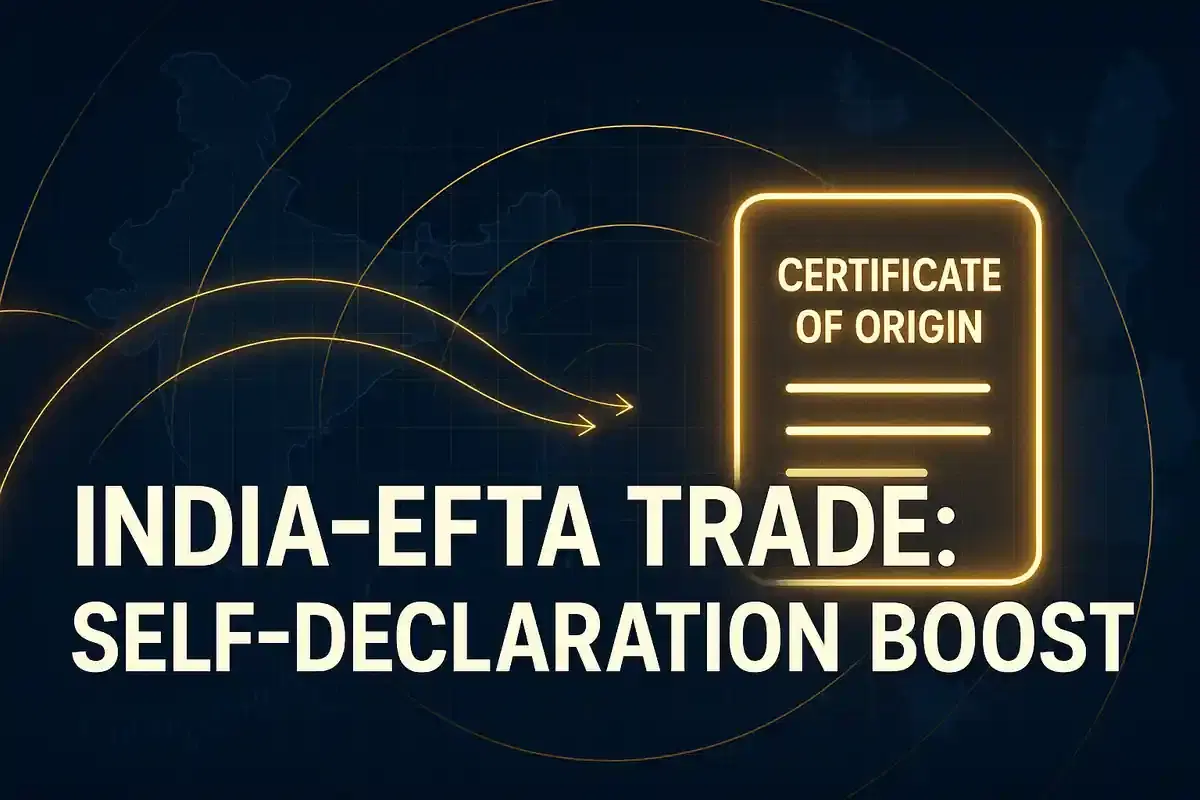India-EFTA Trade Pact: Exporters Can Now Self-Declare Certificate of Origin
Economy
|
28th October 2025, 6:08 PM

▶
Short Description :
Detailed Coverage :
The Directorate General of Foreign Trade (DGFT), part of India's commerce ministry, has amended a provision to facilitate domestic exporters under the India-EFTA Trade and Economic Partnership Agreement (TEPA). This free trade pact, which became effective on October 1, now allows exporters to obtain a Certificate of Origin (CoO) through self-declaration. Previously, this document, essential for claiming duty concessions and proving the origin of goods in importing countries, was issued only by authorized agencies.
**Impact** This change aims to streamline export procedures, reduce reliance on third-party agencies, and potentially lower costs and processing times for exporters. It is expected to enhance the competitiveness of Indian goods in EFTA markets (Iceland, Liechtenstein, Norway, and Switzerland) and boost bilateral trade volumes. The simplified compliance process is a significant step for businesses engaged in this trade route. Rating: 7/10
**Heading: Difficult Terms** * **Certificate of Origin (CoO):** A document that certifies the country where a product was manufactured or produced. It is required for customs clearance and claiming preferential duty rates under Free Trade Agreements. * **India-EFTA Trade and Economic Partnership Agreement (TEPA):** A free trade agreement between India and the European Free Trade Association (EFTA) member states, aiming to boost economic cooperation and trade. * **Directorate General of Foreign Trade (DGFT):** An organization under India's Ministry of Commerce and Industry responsible for matters related to India's import and export policy. * **Self-declaration:** A process where an individual or entity makes a formal statement of fact without requiring verification by an external authority. * **Duty Concessions:** Reductions or exemptions from taxes (duties) imposed on imported goods, typically granted under Free Trade Agreements.